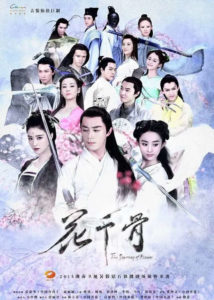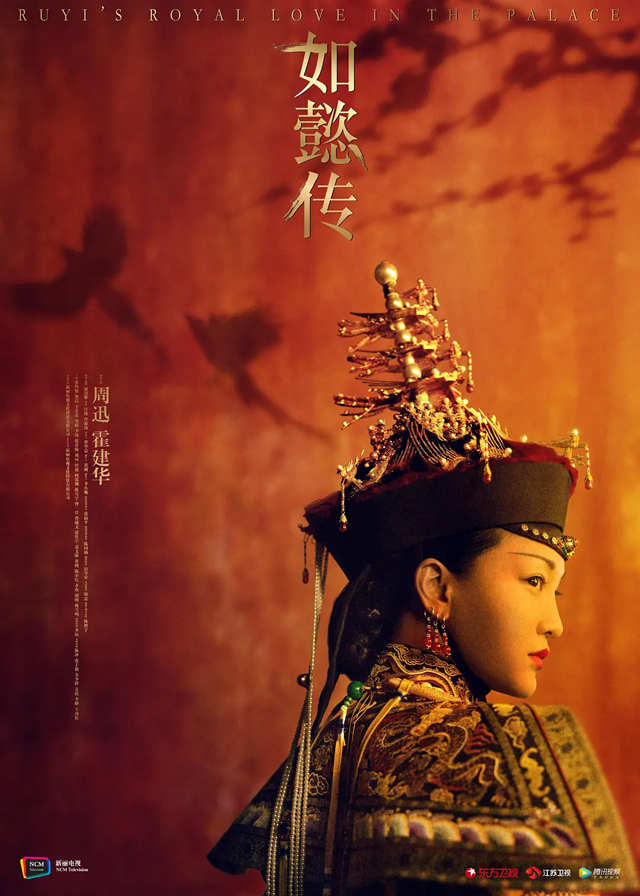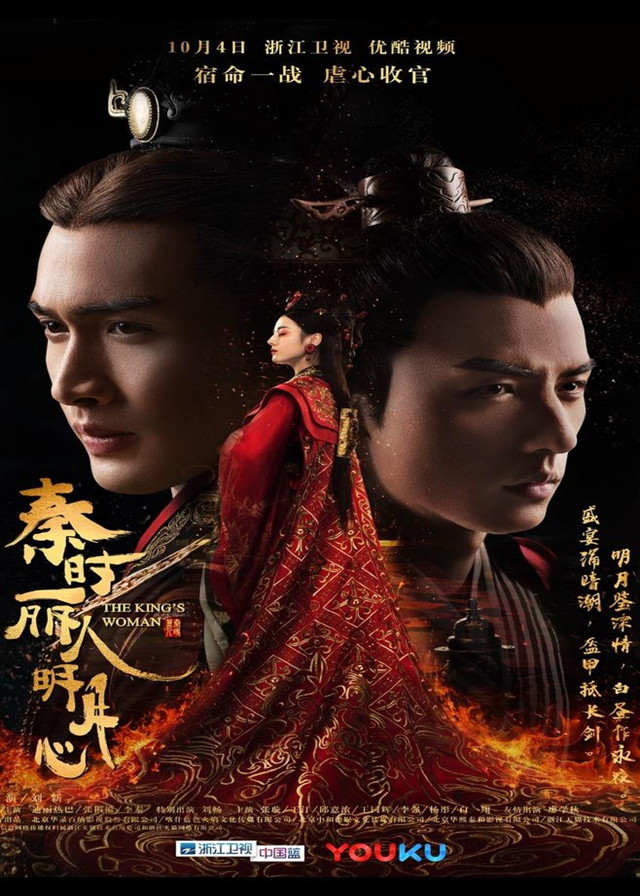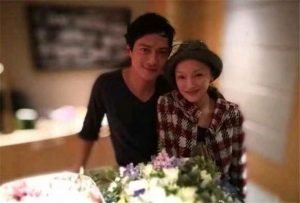Ruyi's Royal Love in the Palace Episode 38 Recap
> Ruyi's Royal Love in the Palace Recap
- 1
- 2
- 3
- 4
- 5
- 6
- 7
- 8
- 9
- 10
- 11
- 12
- 13
- 14
- 15
- 16
- 17
- 18
- 19
- 20
- 21
- 22
- 23
- 24
- 25
- 26
- 27
- 28
- 29
- 30
- 31
- 32
- 33
- 34
- 35
- 36
- 37
- 38
- 39
- 40
- 41
- 42
- 43
- 44
- 45
- 46
- 47
- 48
- 49
- 50
- 51
- 52
- 53
- 54
- 55
- 56
- 57
- 58
- 59
- 60
- 61
- 62
- 63
- 64
- 65
- 66
- 67
- 68
- 69
- 70
- 71
- 72
- 73
- 74
- 75
- 76
- 77
- 78
- 79
- 80
- 81
- 82
- 83
- 84
- 85
- 86
- 87
The Emperor admitted to Ruyi that while marrying Princess Jingse to the Khorchin Tribe was the most suitable arrangement for national stability and maintaining good relations with the Mongols, he was deeply conflicted. He could not bear to subject the Empress to another painful separation after the recent loss of Prince Yongcong.
Ruyi, however, reminded him that a princess's duty to the nation superseded her role as a daughter, reiterating that the best arrangement would be to marry off the person the Emperor trusted most. The Emperor stated he needed more time to consider. Soon after, his eunuch announced that Lord Fu Heng, the Empress's brother, was seeking an audience, which the Emperor suspected was to advocate for the Empress's interests. Ruyi suggested he hear Fu Heng out.
Meanwhile, the Empress Dowager lamented her situation, noting the Emperor was avoiding her, and court officials were opposing Grand Princess Hengti's marriage to Khorchin. Though she understood the political advantages, she, as a mother, was unwilling to part with Hengti, having already endured the separation from her elder daughter, Hengchuo. Just then, Ruyi arrived, offering to help ease the Empress Dowager's worries.
Ruyi proposed a surprising strategy: she advised the Empress Dowager to instruct her loyal ministers to vehemently advocate for Grand Princess Hengti's far-off marriage. More strikingly, Ruyi suggested the Empress Dowager herself should publicly express a strong desire to marry Hengti to Khorchin.
When the Empress Dowager expressed confusion, Ruyi explained that by doing so, the Fuca clan would be pressured to realize the political benefits of marrying their own daughter, Princess Jingse, to Khorchin, thereby compelling the Empress to agree for the sake of her clan's interests. This, Ruyi concluded, would ultimately ensure Grand Princess Hengti remained in the palace.
Impressed by Ruyi's cunning, the Empress Dowager praised her sharp wit, despite Ruyi's claim that she only sought to assist the Emperor, though the Empress Dowager sensed Ruyi still harbored resentment towards the Empress. Having made his decision, the Emperor tasked Ruyi and Noble Consort Chun with persuading Princess Jingse to accept the marriage happily, hoping it would ease his own internal conflict. Ruyi acknowledged the difficulty of the task, knowing Jingse's stubborn nature.
Despite her maid's suggestion to go directly to Jingse, Ruyi insisted they must first inform the Empress. Empress Fuca, meanwhile, was in deep distress, lamenting her brother Fu Heng's greed and the Fuca clan's relentless pursuit of power, which now demanded Jingse's sacrifice. She felt she had dedicated her life to the Fuca clan, only to see her own daughter endure the same fate.
When Ruyi arrived to convey the Emperor's decision, the Empress maintained a composed facade, stating that as the mother of the nation, Jingse's duty to the state came first. Ruyi's praise of the Empress's supposed generosity was met with contempt, as the Empress accused Ruyi of gloating and attempting to usurp her position. Ruyi retorted, highlighting the Empress's "confusion" stemmed from her maternal reluctance despite the clear benefits for the nation and the Fuca clan.
She then drew a sharp contrast to her own childless state, asserting her desire for a simple life free from the pressures of clan and the pain of separating from children, unlike the Empress who, she implied, was forced to do hypocritical things with "tears mixed with smiles." Enraged by Ruyi's words, the Empress furiously dismissed her, ordering her to persuade Jingse.
When Ruyi and Noble Consort Chun tried to persuade Princess Jingse, the princess adamantly refused, declaring that only her imperial parents and grandmother had the authority to discuss her marriage. Noble Consort Chun patiently explained that due to the Empress's illness, the Empress Dowager's advanced age, and the Emperor's preoccupation with state affairs, they had been entrusted with this task. She assured Jingse that the Emperor's affection was evident in his choice of the noble Khorchin prince.
Still defiant, Jingse sarcastically suggested Noble Consort Chun marry off her own daughter. Ruyi then took a more direct approach, explaining that marriage alliances with the Mongols were a long-standing tradition crucial for Great Qing's stability. She told Jingse that as a legitimate princess, she had no choice but to serve the nation and be a dutiful assistant to the Emperor and Empress.
Ruyi further clarified that Jingse's marriage to Khorchin was a calculated move to secure the Empress's position and provide a powerful backer, especially after the loss of the Seventh Prince. When Noble Consort Chun expressed surprise at Ruyi's bluntness, Ruyi asserted that Jingse needed to understand the stark realities and responsibilities of her imperial life. Princess Jingse then knelt before the Empress, who tearfully explained that the Emperor's decision was final.
Jingse questioned why she was chosen over Grand Princess Hengti, to which the Empress explained that marrying Hengti would empower the Empress Dowager by connecting her to two Mongol tribes. She stressed that Khorchin was the most vital ally for the Qing Dynasty, thus demanding the sacrifice of the dearest person. This opportunity, she emphasized, must be seized by the Fuca clan and not given to the Empress Dowager's daughter, as it would greatly benefit the Empress and her clan.
Jingse, accepting her fate as the "hope of Qing Dynasty and Fuca Clan," tearfully submitted. After an emotional farewell, the Empress collapsed in anguish, lamenting the harshness of imperial life and her inability to protect her children. The Emperor reminisced about Jingse's birth, recalling how she was his only princess for a long time, truly a "pearl in his palm," and how difficult it was to send her away.
Ruyi then suggested establishing a Princess Manor in the capital so Jingse and her husband could frequently return for visits, to which the Emperor agreed. An imperial edict was subsequently issued, formalizing Princess Jingse's marriage to the Khorchin Clan and Grand Princess Hengti's marriage to Deputy Minister Zong Zheng, an arrangement that greatly pleased the Empress Dowager. She privately acknowledged Imperial Concubine Mei and Noble Consort Xian's diligent efforts in influencing the Emperor to make this arrangement for Hengti.
The Emperor visited the Empress, expressing his concern for her health. Though she wished to pray for another son, her weak condition led the Emperor to decide on an early return to the capital. After Imperial Physician Qi revealed the Empress's illness was primarily psychological, the Emperor ordered the return journey be by water to avoid the strain of land travel. Later, on the river journey, the Emperor encouraged the Empress to rest.
After she left, he summoned Ruyi to admire the moon with him. The Empress, enjoying the moonlit scenery on shore, saw Ruyi on her way to meet the Emperor and interpreted it as Ruyi flaunting her favor. Displeased, the Empress decided to linger on the shore to clear her mind, while Lianxin went to fetch her medicine.
Alone on the shore, the Empress Fuca overheard Imperial Concubine Mei loudly discussing with Noble Consort Chun and Consort Yu the Imperial Astronomer's prophecy of disaster for the central palace. Imperial Concubine Mei cruelly implied that the untimely deaths of the Second and Seventh Princes were divine retribution for the Empress's past misdeeds. Deeply shaken, the already fragile Empress repeatedly murmured, "measure for measure," as she recalled her deceased sons. Distraught, she lost her balance and fell into the water.
A nearby palace maid, upon seeing the Empress fall, did not immediately assist, allowing her to struggle in the water. However, the commotion quickly drew attention, and Ling Yunche, a blue-feathered imperial guard, immediately jumped into the water to rescue her. After being rescued, the Empress was disoriented, shivering, and continuously muttered "measure for measure." Learning of Ling Yunche's bravery, the Emperor commended him, promoting him to a third-level imperial guard and granting him three hundred liang of silver.
Imperial Physician Qi then reported the Empress's critical condition to the Emperor, explaining that despite removing water from her lungs, her mind was in turmoil, and she remained unconscious, still repeating "measure for measure." The physician gravely stated that the Empress was like a lamp running out of oil, implying she was nearing the end of her life, a pronouncement that shocked the Emperor's attendants.












